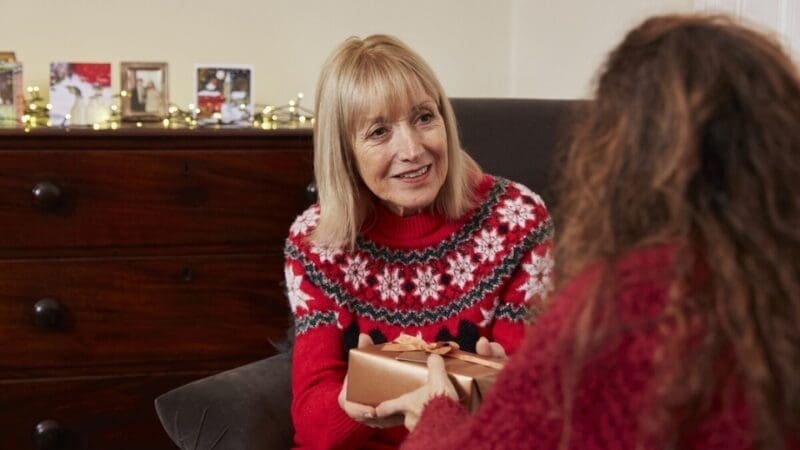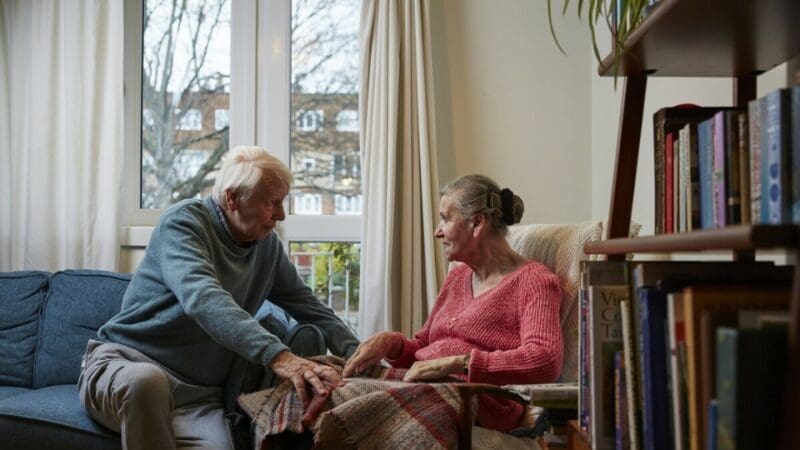
Christmas gifts for people with dementia
Our dementia specialist Admiral Nurses have put together suggestions for appropriate Christmas gifts for people with dementia
Admiral Nurse Mark shares how he is teaching hospital colleagues more about dementia, so they can provide better support to their patients with the condition.
I’m one of 26 dementia specialist Admiral Nurses working in acute hospitals. Admiral Nurses provide life-changing support to families affected by all forms of dementia. In an acute care setting we ensure that hospital stays for patients with dementia and their families are grounded in communication, well-trained support from hospital staff, and the right discharge pathways from the hospital to the community if the needs of the patient changes.
All of this can ensure that families do not get caught up in an endless cycle of discharge from hospital and then readmission due to needs not being met.
Since starting in the role I’ve helped increase the number of people Admiral Nurses are supporting at the hospitals by 400%. I actually spent two to three months scoping out the role, as there hadn’t been a post like this for a number of years.
I had a lot of support from Dementia UK and fellow Admiral Nurses to develop a Standard Operating Procedure (SOP) and referrals pathway. I had a fantastic induction and I have a Consultant Admiral Nurse to support me, Communities of Practice where you meet like-minded acute Admiral Nurses, and a clinical supervision where different Admiral Nurses learn from each other.
When I started out in the field of dementia care, awareness of the condition was limited for colleagues, and myself – dementia care training is still lacking in many undergraduate nursing degrees. Prior to my role as an Admiral Nurse, I spent time as a Ward Manager building up a dementia specialist facility in Macclesfield; it had a memory garden, the right signage, and the right care to ensure that patients were treated with dignity. This experience led me to my current role.
I prefer to be hands on and get to grips fully with a role and wanted to get it right. In September, with everything in place to launch, I produced a resource for every ward on how the role works, including information for dementia champions as well as educational pieces to support the ward staff.
We review and support the person who has been given or has a dementia diagnosis and a lot of work is spent supporting the patient’s family or staff who are looking after them discussing the best ways to care for them, manage symptoms and be part of a multidisciplinary approach to discharge.
The service also receives referrals for patients who don’t have a formal diagnosis of dementia but there are concerns about cognition. Since November 2020 patients have been referred to the Later Life and Memory Service (LLAMS) and through assessments as well as a deep-dive into the patient’s history and symptoms, a diagnosis can be given.
We had around 10-15 referrals in October/November. That went up to the mid-30s in December, almost 50 in January and in February we were up to 57. So far, the service has been very positively received and is becoming widely accessed.
As well as supporting patients and their families, I work with staff too. As I was walking around the hospital, staff members would often approach me for guidance around how they could help their mum, their dad, their nan or other family members who might be living with dementia. You forget, even though we’re nurses, we don’t know everything and looking after a family member is very different to looking after a patient, so I set up a support group for staff which now has around nine members.
I’m there to help, to listen, provide a shoulder to cry on, anything at all. I’ve helped people with referrals to care homes or social services but very often people just need permission to feel the way they’re feeling. I have an open-door policy; people can call me at any time.
I know only too well the challenges of dementia as my grandmother was diagnosed with the condition, which is something that pushed me to become a nurse. The fact that I was entering a female-dominated industry didn’t phase me at all, I was doing this for Nan.
If there had been an Admiral Nurse with my nan, I would have felt as though I had someone who I could talk to, who would understand how I was feeling and support me.
I now hope to invest in the team. I have a new member of staff, Tracy Kirkham, who started training with me at the beginning of January and she’s done amazingly well.
This is the best job in the world, I really, really love my job. It is everything I expected and more and I have never been as happy in a role. Every day I come to work refreshed and ready to go.
You can follow Mark to see how he continues to support WWL patients and staff by searching for @MarkOakley20 on Twitter.

Our dementia specialist Admiral Nurses have put together suggestions for appropriate Christmas gifts for people with dementia

Christmas activity ideas for a person with dementia for a fun and engaging time for all the family

Consultant Admiral Nurse for Frailty, Kerry Lyons, answers your questions about delirium, falls and incontinence.